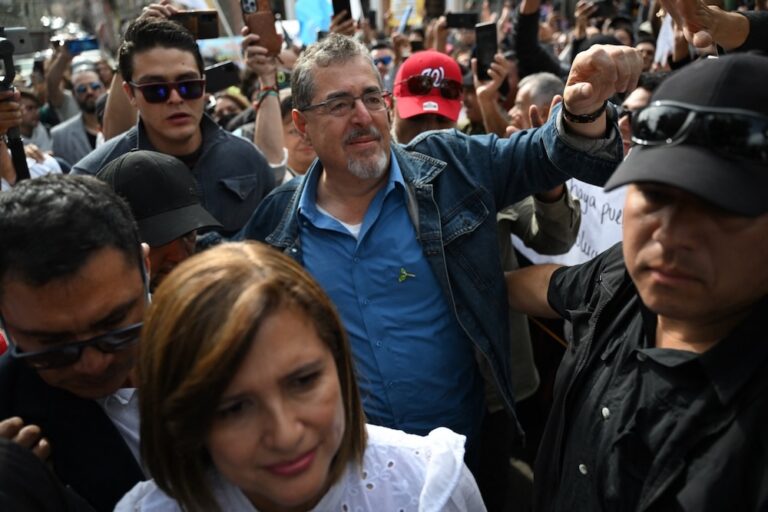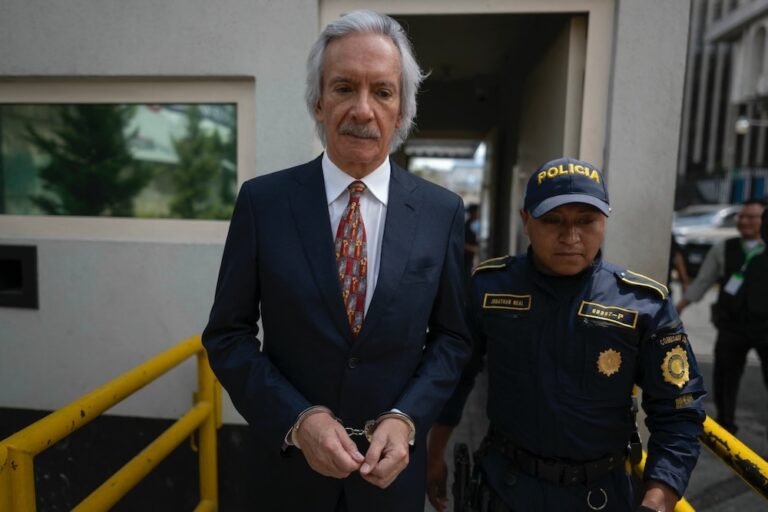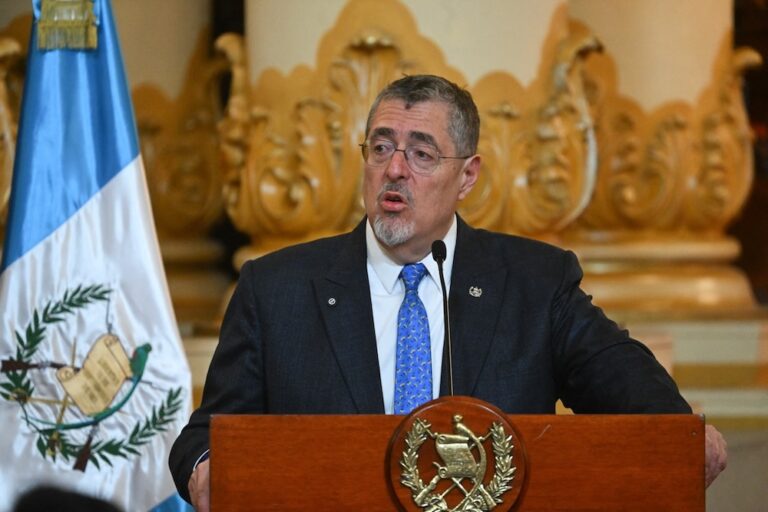(AMARC/IFEX) – The following is an abridged version of a 1 March 2006 statement by the Guatemalan Council on Community Communications (CGCC), of which AMARC is a member: The six member organisations of the Guatemalan Council on Community Communications (el Consejo Guatemalteco de Comunicación Comunitaria, CGCC), denounced in a press release the continuous harassment by […]
(AMARC/IFEX) – The following is an abridged version of a 1 March 2006 statement by the Guatemalan Council on Community Communications (CGCC), of which AMARC is a member:
The six member organisations of the Guatemalan Council on Community Communications (el Consejo Guatemalteco de Comunicación Comunitaria, CGCC), denounced in a press release the continuous harassment by authorities of community radio stations in Guatemala. They also decried the failure of the Guatemalan state to live up to the promises it made before the Inter-American Commission on Human Rights (ICHR) of the Organization of American States (OAS) and as signatory to the Peace Accords.
Almost a year has passed since CGCC met with the ICHR. At that time, the Guatemalan state, represented by the Presidential Commission on Human Rights and the Telecommunications Council, recognized the important service provided by community radio stations and promised to incorporate them within the legal framework of the country, promising also to create a high-level government commission for this purpose.
The OAS special rapporteur for freedom of expression requested just such action by the Guatemalan government, and requested further that it modify the current telecommunications law (Decree 94-96) in order to bring it into agreement with the international agreements ratified by the state.
On 4 July 2005, the Guatemalan state organized a round table on the topic with the major stakeholders participating – representatives of the OAS, the government, and journalists’ and broadcasting groups, including AMARC – to ensure follow-up on the commitments made.
However, no progress has since been made and no further meetings have been held, while journalists and community radio operators continue to be prosecuted and imprisoned, and their equipment seized, in flagrant violation of the right to freedom of expression guaranteed by Article 35 of the Guatemalan Constitution. Also still unaddressed is the promised government study of the radio-electric spectrum, while the proposal that each community radio station have only a broadcast range of 2.5 km would limit public access to an unacceptable extent. Finally, the Congress has not undertaken to reform the telecommunications law, which renders the community radio movement invisible while promoting the interests of the major commercial broadcasters that do not address the social good.
The CGCC demands government action on all these fronts, and calls for discussions to seek immediate solutions.
The CGCC also demands that, in this year of peace declared by the president, that the government fulfill its commitment to the Accord on the Identity and Rights of Indigenous Peoples, which, among other things, includes in its provisions that spaces be opened, within public and private media both, for the dissemination of indigenous cultural expressions.
Freedom of expression is not a privilege granted by states or by the holders of private property, but a fundamental human right.


